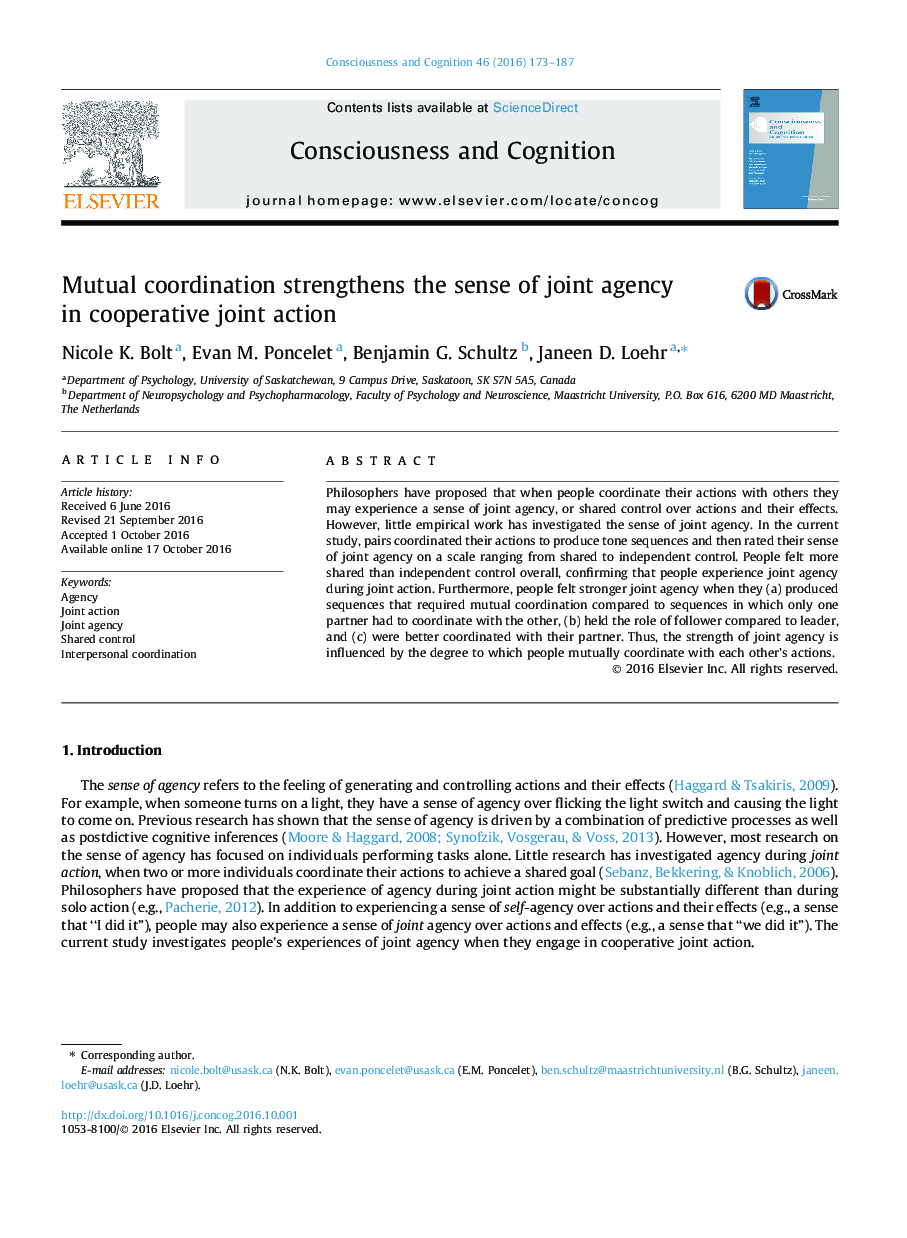| Article ID | Journal | Published Year | Pages | File Type |
|---|---|---|---|---|
| 5041812 | Consciousness and Cognition | 2016 | 15 Pages |
â¢We investigated the sense of joint agency during joint action.â¢Partners coordinated actions and then rated their feelings of shared control.â¢Mutual coordination elicited stronger joint agency than non-mutual coordination.â¢Followers felt stronger joint agency than leaders.â¢Better coordination between partners was associated with stronger joint agency.
Philosophers have proposed that when people coordinate their actions with others they may experience a sense of joint agency, or shared control over actions and their effects. However, little empirical work has investigated the sense of joint agency. In the current study, pairs coordinated their actions to produce tone sequences and then rated their sense of joint agency on a scale ranging from shared to independent control. People felt more shared than independent control overall, confirming that people experience joint agency during joint action. Furthermore, people felt stronger joint agency when they (a) produced sequences that required mutual coordination compared to sequences in which only one partner had to coordinate with the other, (b) held the role of follower compared to leader, and (c) were better coordinated with their partner. Thus, the strength of joint agency is influenced by the degree to which people mutually coordinate with each other's actions.
